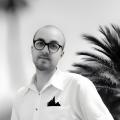
A Lancashire company is benefitting from a university partnership to recycle precious metals.
ICT Reverse, an environmental firm based in Morecambe, has teamed up with Lancaster University to extract valuable metals from printed circuit boards (PCBs) found in waste electrical and electronic equipment.
The partnership with the university's School of Engineering was part of a Knowledge Transfer Partnership (KTP).
The project received funding from UKRI through Innovate UK, which awarded £129,000, with additional funding from ICT Reverse.
Globally, more than 50 million tonnes of electronic equipment are generated each year.
PCB waste is often recycled informally through open burning, which creates toxic fumes, or transported to refineries for smelting or incineration, where much of the valuable material is lost.
The partnership has focused on bioleaching, a technology that uses bacteria to extract precious metals like copper and gold from metal ores in the PCBs.
This method is 'far less environmentally harmful' and allows for commercial recycling of the extracted metals.
Dr Farid Aiouache, from the School of Engineering, said: "The process operates spent PCBs from various domestic appliances and uses an efficient bioreactor design to run the process at moderate conditions of acidity and temperature and promoted safety.
"The aim is to design a technology that is scalable and economically viable."
PCBs contain a higher concentration of precious metals or rare earth metals than the original ore, representing a 'huge source of potential value.'
Craig Smith, group managing director of ICT Reverse, said: "Many original equipment manufacturers (OEM) have committed to stop using rare earth metals; Apple’s commitment to stop using cobalt by 2025 for example.
"So having a sustainable and financially viable way to reuse these rare metals and ores within our existing electronic devices creates a true circular economy, and we see bioleaching as the best way to achieve this goal."
Following the successful completion of the KTP, a three-year PhD studentship will take this further.



Comments: Our rules
We want our comments to be a lively and valuable part of our community - a place where readers can debate and engage with the most important local issues. The ability to comment on our stories is a privilege, not a right, however, and that privilege may be withdrawn if it is abused or misused.
Please report any comments that break our rules.
Read the rules here